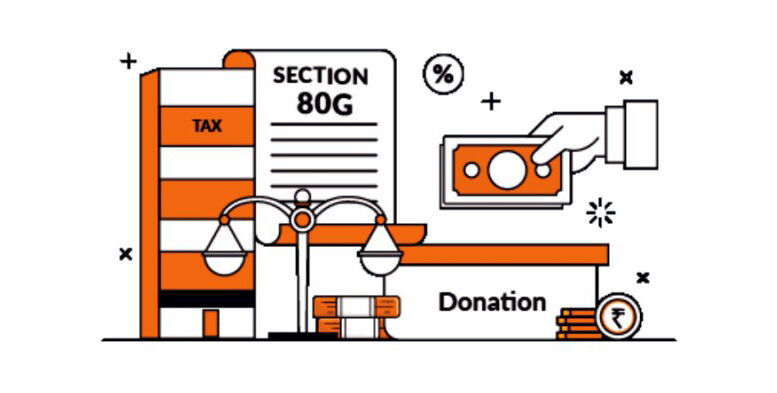How to Save Tax in India While Supporting NGOs
The government of India has a special provision in place to ensure that people make donations to NGOs for noble causes and get tax exemptions in return. Under Section 80G of the Income Tax Act, contributions made to registered NGOs are eligible for a tax deduction. Doing so allows one to support causes close to one’s heart and save taxes at the same time.
In this article, we focus on how to save tax in India by donating to NGOs and shed light on the work of an NGO that works for children’s well-being and development. We also share effective strategies for tax planning and some common mistakes to avoid when you donate and save tax.
Understanding Donations to NGOs for Tax Exemptions
Section 80G of the Income Tax Act provides taxpayers with the opportunity to alleviate their tax burden and, at the same time, support charities. This provision includes a mechanism by which individuals and businesses can reduce their taxable income by declaring deductible contributions to specified charities and funds. In essence, Section 80G highlights the government’s efforts to encourage philanthropy, nurturing a culture of giving that goes beyond mere financial transactions.
Eligibility criteria for claiming tax deductions
The eligibility criteria for donations to NGOs covers:
- The taxpayer must be a resident of India and file taxes under the old tax regime.
- The donation must be made to an institution or fund registered under Section 80G of the Income Tax Act.
- The donation receipt must be obtained from the eligible institution.
- Cash donations exceeding Rs. 2,000 are not eligible for deductions under Section 80G.
Types of NGOs eligible for tax benefits
The organisations eligible to receive donations under Section 80G encompass various charitable endeavours. Donations directed towards registered charitable trusts, religious institutions, and educational establishments qualify for deductions under this provision. Furthermore, contributions to funds for the relief and rehabilitation of the impoverished, the advancement of education or healthcare for the less privileged, or the promotion of rural development or scientific research are also deemed eligible.
For individuals looking to donate to NGOs working for children’s development, Bal Raksha Bharat (also known as Save the Children) could be an excellent choice. This NGO has been working in India for the past 15 years and has impacted the lives of more than 10 million children. Save the Children India operates in areas such as education, healthcare, nutrition, protection, resilience, and inclusion. Head to the Bal Raksha Bharat website to donate and save tax.
Expert Insights on How to Save Tax in India
As individuals and businesses navigate the complex world of tax planning, seeking expert guidance can prove invaluable in maximising tax savings while supporting charitable causes. Here, we delve into insights from tax professionals on leveraging donations to NGOs for tax exemption, along with strategies for effective tax planning and common pitfalls to avoid.
Strategies for Effective Tax Planning
- Tax experts advise strategically aligning donations with the financial year-end or spreading contributions across multiple years to manage taxable income and maximise deductions under Section 80G.
- Tax professionals recommend incorporating charitable giving into overall financial strategies to diversify investments and yield dual benefits of tax savings and philanthropic impact, contributing to social welfare while diversifying tax-saving avenues.
- Experts emphasise adopting a long-term perspective in tax planning, incorporating charitable giving into financial plans to align philanthropic goals with overall tax-saving objectives, and ensuring sustained benefits through strategic decision-making.
Common Mistakes to Avoid
- Failing to maintain proper documentation of donations ranks among the most common mistakes taxpayers make, jeopardising the eligibility of deductions under Section 80G. Obtaining valid donation receipts and certificates from eligible NGOs ensures compliance.
- Misinterpreting eligibility criteria for claiming tax deductions under Section 80G can lead to inadvertent errors in tax planning. Familiarising oneself with specific requirements outlined in the Income Tax Act is essential to maximise tax benefits.
- Overlooking the registration status of NGOs before making donations is a prevalent mistake. Verifying charitable institutions’ registration and compliance status under Section 80G is crucial to ensure donations qualify for tax deductions and safeguard against fraudulent organisations.
Expert insights offer valuable guidance for individuals and businesses seeking to save tax in India through donations to NGOs for tax exemption. By adopting strategic tax planning strategies, avoiding common pitfalls, and leveraging professional advice, taxpayers can optimise their tax-saving efforts while making a meaningful impact on society through philanthropy.
The Way Forward
With the aforementioned knowledge, there’s ample encouragement for individuals and businesses to engage in philanthropy. By contributing to social causes, we support vulnerable communities and benefit from tax incentives. It’s a win-win situation where financial planning aligns seamlessly with philanthropy. Regardless of size, each donation contributes towards building a better society. Donate to Bal Raksha Bharat and save tax while supporting their cause of providing children with a better tomorrow.

Be the first to comment on "Unlocking Tax Savings for Donations to Indian NGOs"